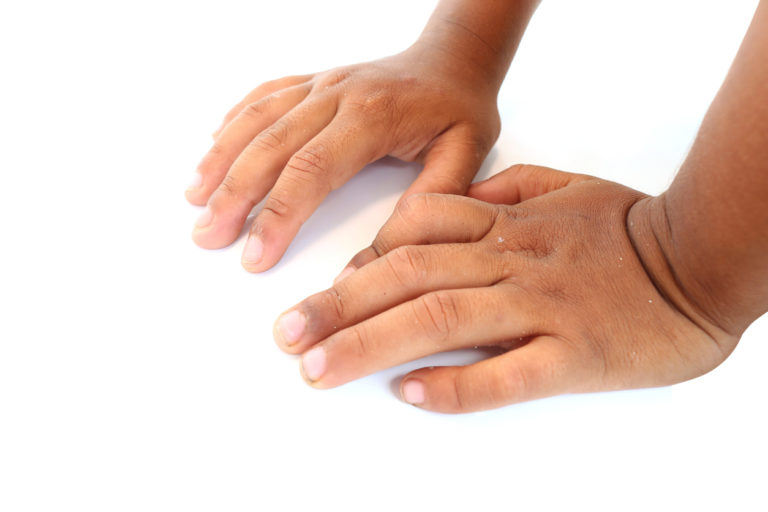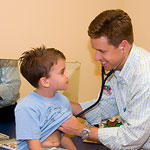 Hand, foot, and mouth disease, while unpleasant, is a common viral illness that will eventually affect most children under the age of 5 – though it can sometimes affect older children and adults. It begins as a fever and a general feeling of malaise. Your child may report feeling tired, having a sore throat, or not feeling hungry. As the virus progresses, other symptoms appear.
Hand, foot, and mouth disease, while unpleasant, is a common viral illness that will eventually affect most children under the age of 5 – though it can sometimes affect older children and adults. It begins as a fever and a general feeling of malaise. Your child may report feeling tired, having a sore throat, or not feeling hungry. As the virus progresses, other symptoms appear.
What Are the Symptoms of Hand, Foot, and Mouth?
Around 48 hours after the fever starts, children can develop painful sores in their mouths. These sores usually appear in the back of the mouth, blister, and can become ulcerated. A characteristic skin rash soon follows over the hands and feet, giving the virus its nickname. These small red spots may also blister and develop over the knees, elbows, or genital area.
Not everyone will display all these symptoms. Some children may present with no symptoms at all but can still pass the virus on to others.
Is Hand, Foot, and Mouth Dangerous?
HFM disease can be painful and unpleasant for young children but is seldom dangerous. In rare cases, parents have reported that their children lose fingernails or toenails after a bout of HFM, but we don’t know if this is a direct result of the disease. In very rare cases, children can develop viral meningitis, which may require a few day’s hospital stay. Call your pediatrician if your child has any of the following symptoms:
- A high, persistent fever that isn’t well controlled with fever reducing medication
- Headache
- Stiff neck
- Back pain
Dehydration is another possible complication for HFM, as painful blisters make it difficult for children to swallow. This can become serious, especially in infants and younger children. Offer plenty of liquids throughout the day to keep your child hydrated. They may enjoy popsicles or Pedialyte drinks.
Will My Whole Family Get It?
Hand, foot, and mouth is contagious, and an infected family member may pass the virus through close personal contact or by touching shared surfaces. If you have other, uninfected children, limit contact and encourage frequent handwashing. Keep your child away from school or daycare for a few days.
It can take up to a week to recover fully from the virus, and your child may be contagious for several days more. Keep them well rested and hydrated, and they should be back to normal within a few days.
It’s okay to offer over-the-counter pain relievers to minimize discomfort, and we recommend a mouthwash to numb the pain from blisters. Never give aspirin or start any course of treatment with an infant younger than 3 months without consulting our office.
The information and content on our website should not be used as a substitute for medical treatment or advice from your doctor.

